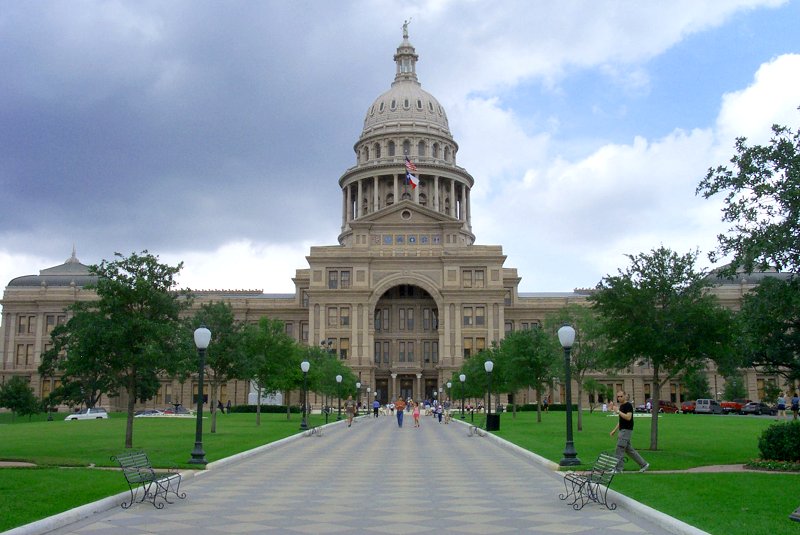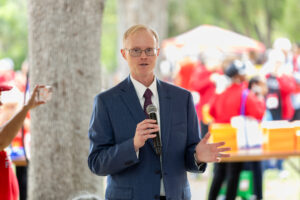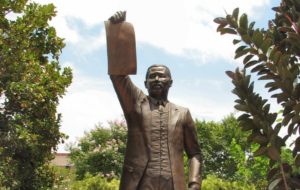- Use our Action Alert to contact your legislators
- TRTA testified to the House Appropriations Subcommittee on Article III that the state should invest in retirees by passing a COLA.
- The House Pensions, Investments, and Financial Services (PIFS) Committee meets on March 1
The Texas House Appropriations Subcommittee on Article III met on Monday, February 27 to hear testimony from state agencies, including the Teacher Retirement System of Texas (TRS). Similar to the Senate Finance Committee meeting held on February 6, the subcommittee met to begin its discussions about the state budget allocation for TRS.
Texas Retired Teachers Association (TRTA) Executive Director Tim Lee provided public testimony, stating that TRTA is focused on providing TRS retirees with a cost-of-living adjustment (COLA).
“Inflation is a pay cut for retirees,” said Lee, “retirees are desperate for a COLA.”
Lee added, “Most retirees have never had a raise in their retirement benefits,” and pointed out that “any raise is an investment in TRS and in the Texas economy.”
Lee discussed the loss in buying power for retirees, stating “the longer you have been retired, the more need and help you may need to receive this legislative session.”
Committee Chair Gary VanDeaver asked Lee if TRTA would support a tiered system for a COLA or an across-the-board COLA.
Lee responded, “It’s a complex problem… We did not get here overnight.” Lee said that it would require “a sophisticated approach” and that it “may take several sessions to get us there.”
TRTA member and member of the Austin RTA Craig Campbell also testified. “Pension payments are an investment in Texas communities, with a greater return than an investment on Wall Street,” said Campbell.
TRS Presentation
TRS Executive Director Brian Guthrie made a presentation to the subcommittee. As of August 31, the value of the pension fund was $184.2 billion with a funding period of 26 years, well below the threshold for what is considered actuarially sound in statute. The Texas Legislature cannot consider a benefit enhancement unless the fund is actuarially sound, meaning the funding period must be 31 years or less.
On February 28, TRS will conduct an updated analysis of the fund which will be used to determine if the fund is considered actuarially sound this legislative session. TRS expects the final numbers from this valuation to be given to the Legislature in approximately seven to ten days. Guthrie said he expected the fund to be “essentially flat” from where it was which is “good news.”
HB 1, the House version of the state budget, as filed, includes the contribution rate increases that were passed via Senate Bill 12 in 2019. Just as a rider appears in the Senate version of the budget, a rider is included in HB 1 that expresses the intent of the Legislature to provide some form of benefit enhancement for TRS retirees if the pension fund is actuarially sound as of the February 28 valuation.
Guthrie explained that the agency has not performed any cost analysis on any bills that have been filed that would provide a COLA for TRS retirees because TRS is waiting on results of the February 28 valuation.
However, Guthrie reiterated his testimony from February 6, explaining that as a rule of thumb, a 1% COLA would cost approximately $1.1 billion. This figure is scalable, meaning that, for example, a 3% COLA on average would cost approximately $3.3 billion.
Committee Chair Gary VanDeaver asked about the projected cost of a thirteenth check for TRS retirees. Guthrie stated that a thirteenth check would cost about $800 million.
Committee member Rep. John Bryant asked, “When was the last time TRS retirees received a COLA?” Guthrie responded that the last COLA was passed in 2013 for TRS retires who retired prior to September 1, 2004, adding that any TRS retiree who retired after that time has never received a COLA.
Rep. Bryant responded, “It seems scandalous.” Guthrie said the TRS program was not structured to provide automatic COLAs like some other states.
Rep. Bryant then asked how contribution rates to Texas TRS compare to that of other states. Guthrie stated that the combined contribution rates from the state, school districts, and active employees is about 16% in Texas, but that in most other states, including those that pay into Social Security, those rates well over 30%. He added that Texas is the “second to lowest in the country” in contribution rates.
Bryant also inquired about what would it cost each year to do a COLA based on the Consumer Price Index (CPI) to account for increases in inflation. While Guthrie did not have precise figures available for this question, he said that state contribution rates would have to double, adding “but there is a constitutional cap of 10%.”
Up Next: Pensions, Investments, and Financial Services Committee to Meet March 1
The House Pensions, Investments, and Financial Services Committee (PIFS) will meet Wednesday, March 1 to hear invited testimony from TRS. While TRTA will not be testifying at this meeting, our members may be interested in watching the live webcast online from this website. The meeting begins at 8:00 a.m. Central.
TRTA is working closely with legislative leaders on our agenda this session. We want to thank Article III Subcommittee Chair Gary VanDeaver and all the Appropriations Committee members for including full funding for the TRS pension fund and the TRS-Care health insurance program in the base budget.
Our commitment to all TRTA members is that we are working to win you a COLA. We have a long way to go this session and as we have reported in the past, there are many groups and organizations competing for the same funding we are trying to win for TRS retirees. We must stand together and stay focused on winning the most we can for TRS retirees.
TRTA members can use these helping COLA talking points, which can be downloaded here, when communicating with their Texas State Senators and Representatives about the importance of passing a much-needed COLA for our public education retirees during this legislative session.
The points include useful facts about inflation, the positive impact TRS retirees have on the state economy, and how the TRS system here compares to that of systems in other states.
TRTA is working hard at the Texas Capitol every day and relies on the grassroots advocacy efforts of our members to help spread the message to every legislator that TRS retirees need a raise!
Members, please use the talking points when reaching out to your legislators, and be sure to follow Tim Lee’s 10 helpful tips for the 88th Legislative Session.
Thank You
Thank you for being a member of TRTA and supporting issues that affect retired Texas public school personnel.
TRTA is the only group that focuses solely on your TRS retirement security! Please join us today!




